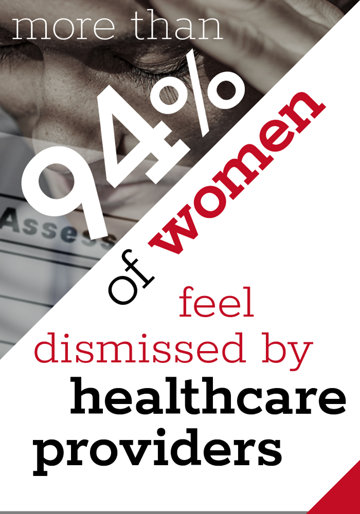Like the lie that there is something that makes women inferior, untrustworthy and a danger that needs to be controlled by law, by custom and by belief. Legislators and scholars alike in the ancient world—from Hammurabi to Confucius to Aristotle—laid down traditions in law, religion and philosophy that carried the lie forward across millennia.
The canard took on a more modern, “scientific” hue in the 19th century, as psychologists and psychiatrists classified women as naturally predisposed to abnormal mental conditions and behaviors.
The woman was involuntarily detained under the Mental Health Act and spent days in a psychiatric ward.
“Women oppose change, receive passively and add nothing of their own,” Sigmund Freud wrote in his article “The Psychical Consequences of the Anatomic Distinction Between the Sexes.” The father of psychoanalysis claimed women’s “problems” and supposed inferiority stemmed from an innate “complex” caused by their lack of a penis. When his peer, Karen Horney, disparaged his “penis envy” theory as nonsense, Freud sniffed, “We shall not be very greatly surprised if a woman analyst who has not been sufficiently convinced of the intensity of her own wish for a penis also fails to attach proper importance to that factor in her patients.”
One of Freud’s specialties was the then-popular psychological “illness” hysteria. For the 19th and most of the 20th century, if a woman exhibited what a psychologist deemed “excessive” emotion, nervousness, anxiety, irritability, fluid retention or even a “tendency to cause trouble for others,” the psychiatric diagnosis was “hysteria.”
The “cures” ranged from hypnosis to hysterectomy to often years in an insane asylum.

But just as clothing styles change, so do psychiatric trends over time. The old diagnosis of “hysteria” faded as the term, and its adjective, “hysterical,” entered everyday language. In 1980, it was removed from psychiatry’s bible, the Diagnostic and Statistical Manual of Mental Disorders, and replaced by “modern” diagnoses like depression and anxiety—conditions that, suspiciously, mirror hysteria’s symptoms and still primarily target women. The lie that women are unstable, over the top and must be controlled lives on, just in a new disguise.
But, not to worry. This is the 21st century. We believe in human rights, after all. We no longer label women with stereotypes obliterated millennia ago. We’ve outgrown such infantile and idiotic prejudices.
Or have we?
This past month, a New South Wales woman told police she was being watched and followed. She could even hear him on the roof.
Lock her up—she’s hysterical!
The woman was involuntarily detained under the Mental Health Act and spent days in a psychiatric ward. One and all—from police to hospital staff—“knew” she was delusional and making it all up.
(As a side note: Who wouldn’t lose it—a creep camping on your roof, and you’re the one with a one-way ticket to the loony bin?)
But shockingly, this was no isolated case.
When the news was posted online by women’s advocate Jessica Taylor, it received a flood of responses, including this one:
“I got laughed at by the police when I reported a guy stalking me online.”
And this one:
“Tried to put me in a facility at seven months pregnant for talking too fast and being emotional during a visit.”
And this:
“I was continuously returned to a known domestic abuser, even after being seen at a hospital with my face badly beaten, my cheeks nearly broken. But they always believed his lies and forced me to not only live with him, but take known neurotoxic psychotropics with numerous horrific and deleterious, harmful brain and body effects over my known will and wishes.”
In case there was any doubt that “she’s upset, so she must be crazy” is still alive and well: in a Sydney Morning Herald survey, over 1,700 out of 1,800 women said they were dismissed by healthcare providers—many diagnosed with “mental illness” while their real, underlying physical conditions were ignored.
So step right up, pick your favorite century and check the box you prefer: she’s inferior/she has penis envy/she’s hysterical/she’s sad and stressed out: Put her away!
Oh, and by the by, that “hysterical” New South Wales woman? As it turns out, there was, indeed, a stalker—as evidenced by the presence of food and cameras inside the roof of her home.
There is a book, Everything Men Know About Women, that this writer owns and consults from time to time. The liner notes proclaim: “A landmark book on men’s understanding of that most complex of all creatures—woman. Based on years of research and interviews with thousands of men from all walks of life, [the author] presents the most complete picture ever revealed of men’s knowledge of their opposite sex.”
It consists of 128 blank pages.






















